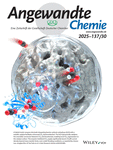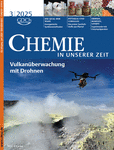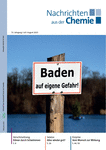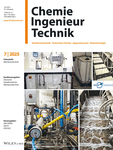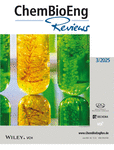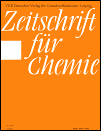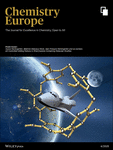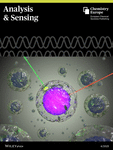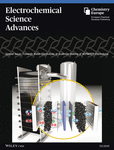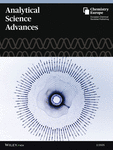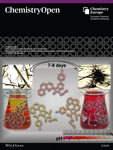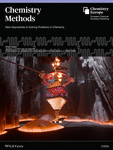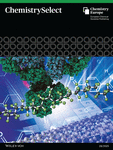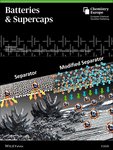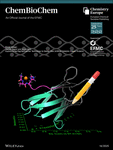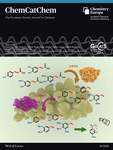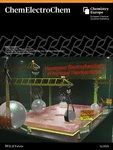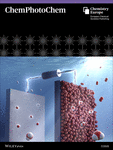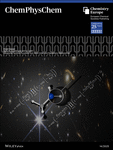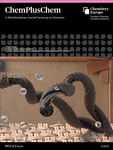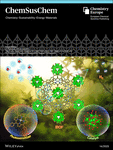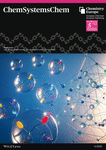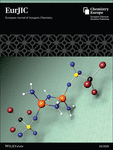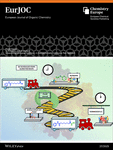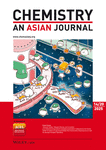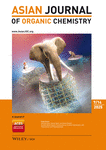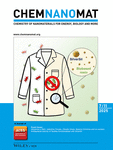Journal list menu
Preprint Guidelines
These guidelines apply to: Angewandte Chemie International Edition, Angewandte Chemie, Chemistry Europe journals, Asian Chemical Editorial Society (ACES) journals, The Chemical Record (TCR), Chemistry & Biodiversity, and Helvetica Chimica Acta.
Terminology Clarification
•
Preprints are ′posted′ to a preprint server.
•
Manuscripts are ′submitted′ to a journal.
•
The ′submitted version′ is the manuscript initially submitted to the journal.
•
The ′revised version′ is the version of the manuscript that has been revised in response to referee comments obtained by the journal or comments made by the journal′s editor(s).
•
The ′accepted version′ is the version of the manuscript that has been accepted by the journal prior to copy editing and proofing.
•
The ′Accepted Article′ is the online-published and citable version of a manuscript that has been accepted by the journal prior to copy editing and proofing. It is only published by hybrid journals and is protected by copyright.
•
The ′final version′ is the copy-edited, page-proofed Version of Record published by the journal.
•
Fully Open Access journals publish Open Access content exclusively.
•
Hybrid journals publish both Open Access and subscription content.
Synopsis
•
Fully Open Access journals will consider for review articles previously available as preprints. Authors are requested to update any pre-publication versions with a link to the final published article. Authors may also post the final published version of the article immediately after publication.
•
Hybrid journals will consider for review articles previously available as preprints. Authors may also post the submitted version of a manuscript to a preprint server at any time. Authors are requested to update any pre-publication versions with a link to the final published article.
•
Always declare preprints associated with submitted manuscripts.
•
Submitted manuscripts must cite relevant preprints (whether posted by the submitting author or another researcher) that have a bearing on the work.
•
When in doubt, 1) consult the journal′s Notice to Authors under Author Guidelines on the journal′s webpage, 2) contact the editor for clarification.
1. Introduction
The aforementioned journals consider submitted manuscripts that have been previously posted to a community-trusted, subject-based preprint server or repository such as ChemRxiv, bioRxiv, and arXiv.
This decision was triggered by the German Chemical Society (GDCh)—the society that owns Angewandte Chemie and co-owns numerous Chemistry Europe journals—in response to a groundswell of support for rapid dissemination of scholarly information and the launch of the ChemRxiv preprint server. ChemRxiv, is a preprint server for chemistry, which was launched by the American Chemical Society (ACS) in August 2017 and it is officially endorsed and co-owned by the leading chemical societies the GDCh and the Royal Society of Chemistry (RSC). In August 2019, the Chinese Chemical Society and the Chemical Society of Japan became co-owners of ChemRxiv.
Authors are able to transfer their preprints directly from ChemRxiv to most of the aforementioned journals with a transfer function that is integrated into ChemRxiv. Read the ChemRxiv editorial for more information. Similarly, authors who post a preprint to bioRxiv can automatically submit to the following journals: ChemBioChem, Chemistry–A European Journal, Chemistry–An Asian Journal, ChemMedChem, and Chemistry & Biodiversity.
2. What is a Preprint?
A preprint is defined as a draft, or version, of a paper that is posted on a preprint server and which has not yet been peer reviewed for formal publication. By definition, a preprint intends to disseminate research before acceptance and publication in a journal.
Before posting, a preprint may have benefited from the scrutiny of colleagues, and upon posting, it will typically undergo screening checks (e.g., for previous publication in a journal, graphical manipulation, plagiarism, and offensive, dangerous, and non-scientific content). After posting, the preprint is freely available, citable, and can be commented on by the community at large. A preprint server is a repository for preprints. Preprints are indexed on major search engines such as Google and SHARE, but not on the Web of Science or Scopus.
A preprint does not receive the editorial services that are ordinarily provided by a journal. At the aforementioned journals such services include single-anonymous peer review, reports from referees, mediation, copy-editing upon acceptance of a manuscript, production of the version of record in an attractive layout in both html and pdf formats, hosting of that content on a web page within a searchable online library, curation of articles in themed collections, media coverage, promotion on social media, and more. Articles published in journals accumulate citations, which contribute to metrics such as a journal′s impact factor, and articles published within established journals are indexed on databases such as Web of Science and Scopus.
3. Points to Consider Before Submitting a Preprint to a Journal
a)
A preprint service provider may ask authors to sign an agreement that prevents publication of the work in a journal later. On ChemRxiv, authors may control the usage rights for their posted preprint with one of three CC BY attribution licenses. When posting on a preprint server, such as ChemRxiv, we recommend that authors retain the rights to their work through use of a non-exclusive license to distribute interim research products (e.g., with a CC-BY-NC-ND or no reuse license), so that their publication options are not limited in any way later on. If an author posts a preprint under one of these licenses, the author can grant the publisher rights to use in a commercial and/or derivative manner because the author has retained those rights.
b)
Failure to declare the preprint(s) associated with submission to a journal may be non-compliant with the journal′s Notice to Authors and could be grounds for rejection of a submitted manuscript.
c)
Publicity of preprints through media coverage (e.g., press releases) is not advised when publication of the work in a journal is envisaged. Authors run the risk of attracting media attention to the work before it has undergone a thorough peer-review process.
4. What is the Journal′s Policy with Respect to Preprints?
a)
The aforementioned journals are considering manuscripts that have previously been posted on a community-trusted, subject-based preprint server or repository (such as ChemRxiv, bioRxiv, and arXiv), at the discretion of the editor.
b)
For fully Open Access journals, the submitted and final versions of the manuscript (the accepted version and the final version, i.e., the Version of Record) can be posted to a preprint server. For hybrid journals publishing subscription articles, the submitted version of the manuscript can be posted to a preprint server at any time (i.e., ONLY the submitted version, and not revisions stemming from peer review or the Accepted Article or the Version of Record unless, and only if, the article has been published Open Access).
c)
Authors should adhere to the legal and ethical requirements of the preprint server and the journal. Where conflicts arise between the two sets of policies, the author may need to choose between posting on a preprint server or publishing in a journal.
d)
When unsure, authors should refer to the Notice to Authors provided in the Author Guidelines on the journal′s homepage. If still in doubt, contact the editorial office of the relevant journal for guidance.
e)
Where a preprint exists, this must be declared to the editor at the point of submission of the first version of the manuscript and for any subsequent revisions. This declaration does not exclude the submitted manuscript from consideration at the journal, but rather, it is helpful to the editor and the referees evaluating the manuscript. Authors have the opportunity to disclose the prior history of their submission in Editorial Manager, which is the submission portal for the aforementioned journals.
f)
The editor of a journal reserves the right to reject a submission if that manuscript violates the journal′s policies, is unsuited in terms of scope, and/or it is deemed unsuitable for publication by one or more referees. This right applies regardless of the existence, or not, of a corresponding preprint.
g)
Subscription articles published by a hybrid journal have copyright protection and may not be posted as a preprint. A preprint server provider may directly reject content that has already been published in a journal.
h)
For transferred and resubmitted manuscripts, refer to Section 4, point (b).
i)
Posting of reviewer reports on ChemRxiv: reviewer reports obtained from peer review of a manuscript may not be posted alongside a corresponding preprint. Reviewer reports are confidential and are contributed by the reviewer on a discretionary basis for the improvement of the submitted manuscript.
j)
Authors must ensure that their preprint is linked to the Version of Record so that any citations attributed to the preprint after publication at a journal are transferred to the Version of Record. CrossRef–DOI matching is carried out automatically but can fail in some cases; e.g., if there have been changes to the title. When publishing in Angewandte Chemie International Edition and Angewandte Chemie (German edition), please ensure that the preprint(s) is/are linked to Angewandte Chemie International Edition.
k)
Authors of preprints and journal manuscripts have sole responsibility to comply with existing commercial and/or patent agreements.
l)
When more than one preprint corresponds to a submitted manuscript, authors should observe the above guidelines for every preprint.
m)
Authors must cite relevant prior works in their submission. This policy applies to previously published articles and to previously posted preprints (see the Notice to Authors on the Author Guidelines page). A preprint should be cited as follows: N. Duchemin, R. Buccafusca, M. Daumas, V. Ferey, S. Arseniyadis, 2019, ChemRxiv preprint DOI: 10.26434/chemrxiv.8091314.v1; S. McKechnie, J. M. Frost, D. Pashov, P. Azarhoosh, A. Walsh, M. Schilfgaarde, 2017, arXiv preprint arXiv:1711.00533 [cond-mat.mtrl-sci]; S. McKechnie, J. M. Frost, D. Pashov, P. Azarhoosh, A. Walsh, M. Schilfgaarde, 2017, arXiv preprint DOI: 10.48550/arXiv.1711.00533; Z. Li, Z. Lin, C. F. Ibanez, 2021, bioRxiv preprint DOI: 10.1101/2021.05.02.442373.
5. Advice on Preprints from the Committee on Publication Ethics (COPE)
For further information about preprints (e.g., the challenges and ethical considerations associated with posting preprints, and examples of preprint platforms) read the COPE Discussion Document.
6. Q&A
I have just posted my preprint on a preprint server. Can I submit the preprint to your journal?
Yes you can, and if you are using a preprint server such as ChemRxiv you can take advantage of the handy transfer function that is available. Whether you are transferring your preprint from ChemRxiv or submitting your preprint directly to the journal, you must declare the preprint to the editor. Your declaration should include the DOI of the preprint. Declaration of your preprint does not exclude your manuscript from consideration. The editor of the journal will assess the suitability of your manuscript for publication in the journal. If the editor decides that the manuscript is within the scope of the journal, the information about your preprint may be passed on to referees for consideration.
I am about to submit a manuscript to your journal. Can I post the submitted manuscript on a preprint server simultaneously?
Yes. Posting of the submitted version is allowed at any time (see Section 4, point (b) for further information).
The Version of Record (after refereeing, acceptance, and copy editing) of my paper is published online, can I post this version of my paper on a preprint server?
Yes, but only if your article has been published Open Access.
The accepted version (after refereeing and acceptance, but before copy editing) of my paper is published online as an Accepted Article. Can I post this version on a preprint server?
The Accepted Article is only published by hybrid journals. Subscription articles are protected by copyright (see Section 4, points (b) and (g)); therefore, posting on a preprint server is not permitted unless the Accepted Article is already published Open Access. If the article has been published Open Access, then all versions can be posted on a preprint server without an embargo.
A peer has commented on my preprint after publication of the Version of Record in your journal. As a consequence of this comment we would like to make changes to our published paper. Can we do so?
Possibly; please consult the editor. If the modification desired is serious (e.g., a grievous scientific error), the editor may recommend publication of a corrigendum or retraction. In such cases, the editor may seek advice from the referees who were previously involved in reviewing your paper. If the modification desired is deemed non-critical, the editor may decide that a corrigendum is not justified and that no further modifications may be made.
My submitted manuscript is currently under review at your journal and the corresponding preprint was posted on a preprint server in accordance with the journal′s guidelines. In the meantime, we have discovered a serious error in the submitted paper, which we would like to correct. Can we make changes to the preprint as well?
Yes. If the error has been discovered without input from the journal′s editor(s) or referee(s), you may amend your preprint if doing so is in accordance with the policies of the preprint server. In such cases the editor should be contacted immediately to arrange withdrawal of the manuscript. You may subsequently resubmit your corrected manuscript, but please ensure that the editor is made aware of the history associated with the work, and please provide a link to the updated preprint.
We have revised our submitted manuscript as per the comments of the referees and the editor. The extra work that we have undertaken has required additional experiments and the addition of a co-author/co-authors to our manuscript. Can we add the co-author(s) to our preprint, which was already posted on a preprint server in accordance with the journal′s guidelines?
Yes, but only if your article has been published Open Access.
I have posted my preprint on a preprint server and I would now like to split the preprint into multiple manuscripts, which I intend to submit to the same journal / multiple journals. Will your journal consider one of / all of these manuscripts?
Further consideration of your submitted manuscript(s) will be at the discretion of the editor. Among other things, an editor will consider whether the work posted on the preprint server has been unduly fragmented; i.e., the preprint has been split with the intention of creating multiple publications when one publication is preferable for a cohesive and well-rounded scientific presentation. When an editor finds undue fragmentation (also known as "redundant publication" or "salami slicing"), it is likely that your manuscript will be considered unsuitable for the journal. Please refer to the ethical guidelines.
My manuscript was rejected after peer review and I have appealed against the editorial decision. The editor agreed to consider the (revised) manuscript. May I also revise and update the associated preprint?
Yes, but only if your article has been published Open Access.
My manuscript was rejected after peer review and the editor has invited me to submit a revised version at a later date. May I also revise and update the associated preprint?
Yes, but only if your article has been published Open Access.
Unfortunately, my paper has been retracted from this journal. The associated preprint is linked to the paper. How is the change to the status of the paper reflected in the preprint?
The preprint should link to the Version of Record such that any change of status to the published paper will be automatically updated on the preprint platform. If the operator of a preprint server is made aware of a retracted article, they should investigate whether the associated preprint requires retraction or another appropriate response. Further action would be determined after a discussion between the preprint server operator, author, and/or publisher.






